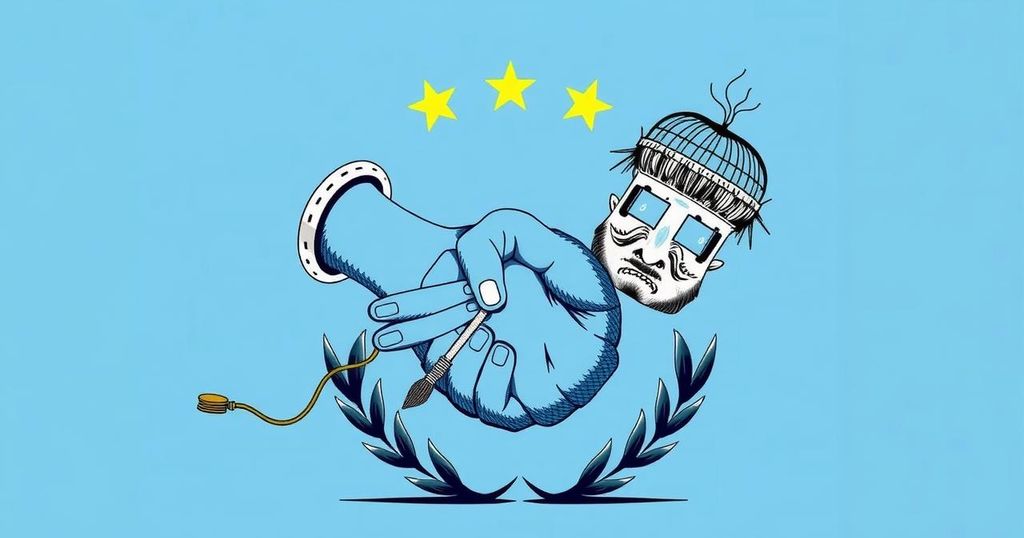Concerns Regarding the Disenfranchisement of Young Voters in Uruguay’s Elections
Uruguay’s recent presidential election lacked engagement and excitement, resulting in no majority winner. Despite the country’s democratic history, a concerning number of young citizens express apathy, feeling neglected amid rising unemployment, educational dropout rates, and mental health crises. This disconnection between candidates and voters threatens the fabric of democracy in Uruguay, signaling a need for significant political revitalization and responsiveness to societal concerns.
In a year marked by significant elections, Uruguay’s recent presidential vote received little attention, reflecting a lack of engagement from both candidates and voters. The election was characterized by uninspiring candidates who failed to rally undecided voters, resulting in no candidate winning a majority. Consequently, the nation now faces a runoff amid unenthusiastic political discourse, a stark contrast to its historically vibrant electoral culture that has thrived post-dictatorship. This lack of excitement masks a deeper concern: the increasing disenfranchisement of young Uruguayans. Despite the country’s standing as a symbol of stability and democratic resilience in Latin America, a troubling 38 percent of surveyed youths expressed willingness to sacrifice democracy for effective governance.
The issues confronting young individuals in Uruguay are severe—high youth unemployment rates, elevated dropout rates, and significant food insecurity compound their disillusionment. The pandemic exacerbated mental health challenges, leading to alarming suicide rates among youth. This growing disillusionment extends beyond the younger demographic, as older generations also express frustration regarding governmental failures, including the management of poverty and rising crime rates. While political engagement may be low and the candidates appear disconnected, the urgency of addressing these foundational issues remains critical to safeguarding Uruguay’s democratic fabric.
Uruguay, with a population of approximately 3.4 million, has long been recognized for its stable democracy and peaceful political transitions. However, the current electoral cycle has seen diminished enthusiasm largely due to lackluster candidates and growing social issues that resonate particularly with the youth. Historical experiences of dictatorship have instilled a deep appreciation for democratic values, but recent trends indicate a troubling shift in perspectives among younger voters. The latest statistics reveal alarming youth unemployment and education dropout rates, indicating significant socioeconomic challenges that threaten the nation’s social stability and democratic integrity.
In conclusion, while Uruguay’s recent elections may seem unremarkable at face value, they signify a critical moment in the nation’s political landscape. The detachment of younger voters, coupled with the discontent expressed by older generations over pressing social issues, underscores a pressing need for revitalization in political engagement and response to citizens’ needs. Fostering a genuine connection between the electorate and their leaders is essential for reinforcing Uruguay’s democratic legacy and addressing the urgent social challenges facing the nation.
Original Source: www.nytimes.com




Post Comment